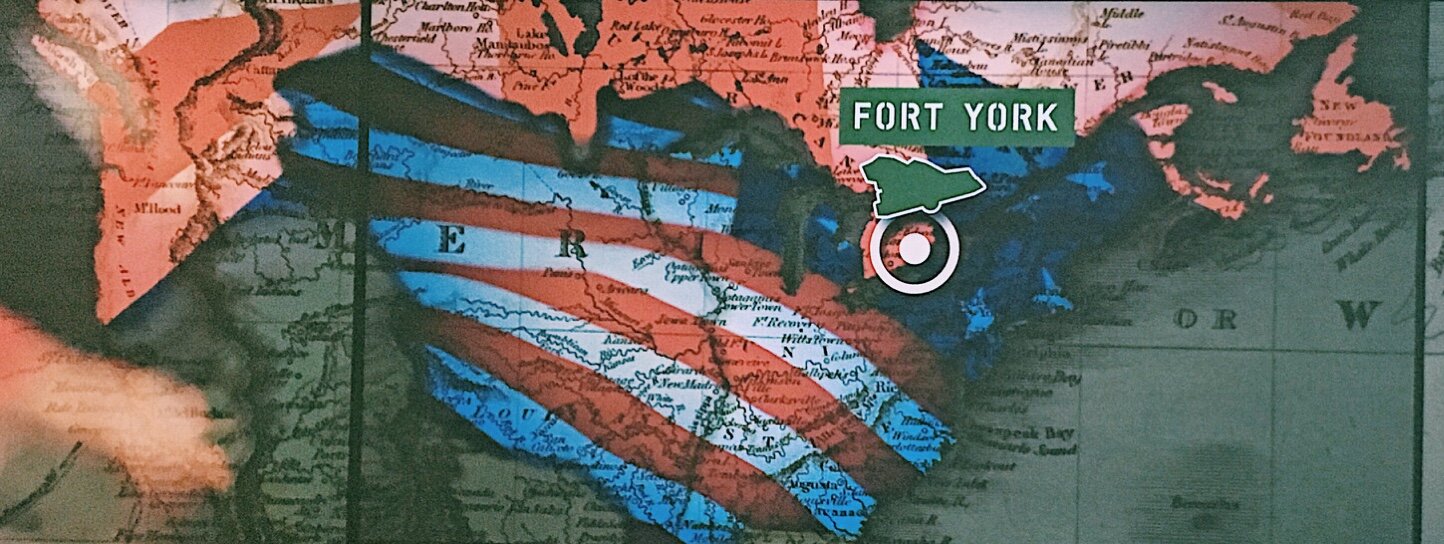Fort York Origines and History
Fort York in Toronto.
Time to return to Toronto by exploring what Fort York is and its origins. We are going to discover what its purpose is and its overall structure.
Exhibition
Before going to the actual fort, you can have the choice to have a look at the display that is beside the office of the site. It is covering the original reasons for its construction, which was during the American-English war in the 1800s.There is also a timeline representing the main events in which the fort played a big part. Like its use after the war with the Americans, the dangers it faced in the 19th centuries and its declaration as a Historical Site.The exhibition presents many historical figures that interacted with the fort at some point. Those figures are Joseph Sawyer, chief of the Mississauga tribe ( and no he is not related to the character Tom Sawyer!).Peter Jones, educator chief in the Ojibwa culture.Or even Mr. Bryan Laforme, leader of the Mississauga tribe in our days.A small movie is also available, exploring the main events that threatened the Fort during its history until its transformation into a museum.
The Fort
Now let's move on to the main part of this visit, the fort and the various buildings that composes it.
The Barracks
The North and South Barracks are the first buildings that you are going to see because they are at the entrance of the fort. I don't think I need to expand on these buildings as it is basically where the soldiers of the garrison lived.
Officer's Barrack
Same as the regular barracks, it is just more comfortable as it was for the officers of the forts. It possessed its private kitchen, dining room, sellers and even a vault. The building also had its own tea room. One last detail is that it is much more isolated than the soldiers Barrack, which means that you're not freezing in winter and not boiling in summer.
The Stone Magazine
Probably one of the most resilient structures of the Fort because it was the stone magazine for the cannons, but also for gunpowder. This means that the building was supposed to be particularly resilient. Imagine the catastrophe it could create if an enemy shot triggered the powder. Notice also that the building is slightly built underground to limit its exposition to enemies fire during an attack.
Officers' Blue Barrack
This building is very bizarre because it is supposedly the Barrack of the newly promoted officers.Today it houses two mini-exhibitions, the first one is exploring the excavation process employed when the site became a museum. The second one is presenting the state of the navy of both the British and the Americans during the war of independence. It is doing so by comparing the size of the two navies at different point of the war, the weapons used on board, and finally, the various naval battle fought and who won them. Fun fact about the fort: it used to be on the coast of the lake, this means that a big part of downtown Toronto was build on the lake!
Blockhouse #1 and #2
The blockhouses are the last bastions the defenders had during an assault, and an escape was not an option anymore. The building is incredibly resilient. It was capable of withstanding even small calibres canon round making it the strongest part of the fort. The blockhouse #2 also contains a small exhibition of weapons and specifically firearms. The first floor is mainly exploring the different types of cannons used in war. The range of canons varies from the small rifle-guns to the "please don't point this at my house" types of guns. The second floor is more turned towards the infantry, like the different rifles and pistols used. It also explores the different corps the organization of a regiment.
Brick Magazine
Very similar in use to the stone magazine, but instead of containing stone and gunpowder it stored bricks for construction. Another fun fact is that it used to be a gunpowder magazine, but its structure was too weak! They were too vulnerable to the enemy's fire to adequately protect the gunpowder. It's the reason why this building is of the same design than the Stone Magazine.
Finishing
Well, this is all I have to say about this place. I hope you enjoy this post and if you want to learn more, go check it out, it's worth the visite.












